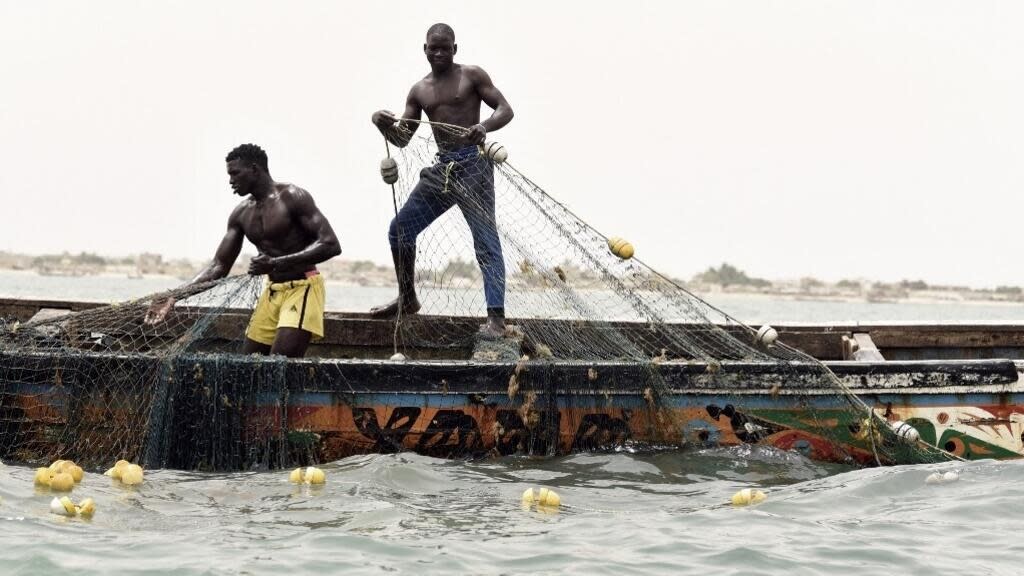Fishermen left stranded as Senegal's most sought-after catch moves north

Coastal communities in Senegal are reeling as stocks of sardinella – the country’s most consumed fish – disappear from local waters. While fishermen blame industrial trawlers, scientists say climate change is sending the small, paddle-shaped fish northwards in search of cooler habitats.
Fisherman Amadou Gueye returns to Dakar's small port of Ouakam with only five octopuses after a long day spent at sea.
"It's not good. There's the current and no fish," he laments. "The big boats make it hard, leaving us with nowhere to fish."
Finding sardinella, a staple food and crucial economic resource in Senegal, has become a major challenge, confirms Ibrahima Ndiaye, vice-president of Ouakam's local fishermen's committee.
"The pirogues now spend seven days at sea going to Mauritania, Guinea-Bissau and Guinea-Conakry – whereas in the past there was daily fishing," he tells RFI.
"We used to go out in the morning and come back in the evening."
Ecosystems changing
The so-called "tropicalisation of ecosystems" – or warmer sea temperatures altering north-west African coastal waters – is driving the redistribution of sardinella and other small pelagic fish.
Read more on RFI English
Read also:
Young Senegalese forced abroad by dual economic and political crises
Food shortages and malnutrition reach record levels in west and central Africa
Grain shortfall from Ukraine war exacerbates food insecurity in Africa


